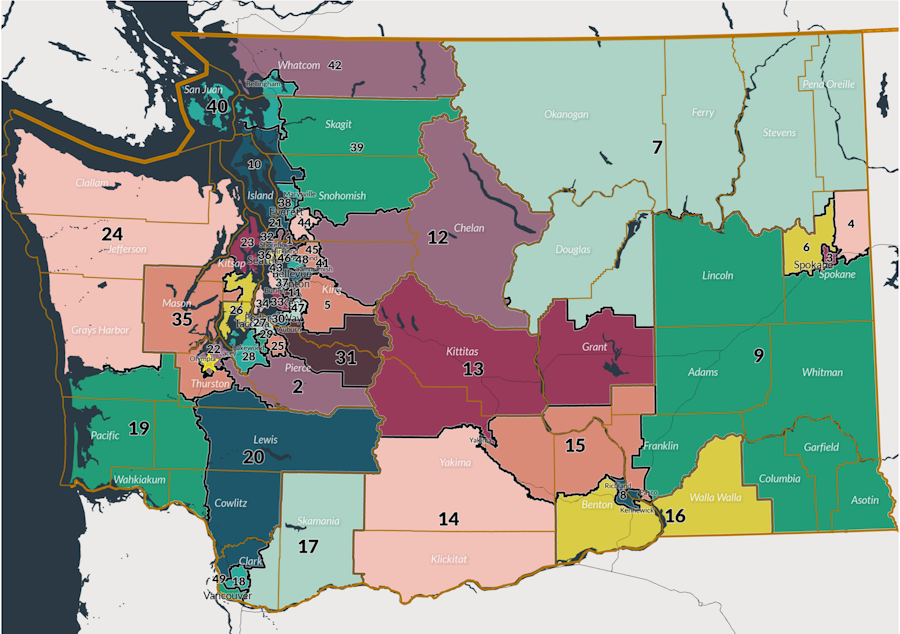Latino voters sue over Yakima Valley's new legislative maps

A group of Latino voters has filed a federal lawsuit claiming that Washington state's recently approved legislative maps violate the Federal Voting Rights Act. The lawsuit argues that the redrawn 15th District in the Yakima Valley dilutes the strength of Latino voters.
Sonni Waknin is the Managing Attorney and Voting Rights Counsel at the UCLA Voting Rights Project, one of the groups suing. KUOW’s Kim Malcolm asked her how the new map violates the Voting Rights Act.
Sonni Waknin: We're saying that the map, as drawn, cuts through the city of Yakima, pulls in all of these rural white voters into this supposed Latino-majority district, then grabs some Latinos in the city of Othello so that the district — as we're calling it — is a "facade" district.
It looks like it's a majority of Latino voters. It's a bare majority, 50.2%. But in reality, Latinos are having their votes diluted in the district, because they're being grouped in with rural white voters who have voting patterns that are opposite Latino voters.
Under the Voting Rights Act, a protected class has to have the ability to elect candidates of choice. A districting scheme cannot be drawn in a way that would not allow Latinos to be able to elect that candidate of choice, but District 15 is drawn in a way that there's a majority of Latino voters, but the district won't perform for Latino candidates of choice.
If these maps end up staying in place, how do you see that impacting Latino voters in District 15 over the next 10 years?
There is a long history of voting rights discrimination against Latinos in the Yakima Valley region. If these maps are kept in place for the next 10 years, then Latino voters will have to face another 10 years of not being able to elect candidates of choice and not having a say in the state legislative district races.
What’s the possible impact for people who might run for office in that district over the next 10 years?
For candidates who may be the preferred candidate, it's harder to fundraise, to resource gather, to get buy-in from the community when you've faced voting discrimination for so long, and you've lost a bunch of elections.
In the second instance, if you're not the preferred candidate of choice, you know that you actually don't have to run an election that talks to Latino voters in that region. You don't have to go into their communities and campaign and try to earn their votes. Then it also makes you a less responsive legislator. If you don't have to ask people for their votes ever, and you never have to go to their communities, then once you're in office, you don't ever have to listen to their voices either.
A law firm representing Republican members of the redistricting commission looked at your organization's analysis of the maps and they dispute that they would violate the Voting Rights Act. They say that plans for a majority-minority Latino district actively seek to weaken Republican incumbents and strip the minority Republican Party have a meaningful opportunity to compete in Washington. What would you say to that?
Sponsored
Political parties are not protected under the Voting Rights Act. The Voting Rights Act must be followed. Our analysis shows that a majority-minority district must be drawn in the Yakima Valley region for Section 2 Voting Rights Act compliance.
The lawsuit is seeking a court order for a new map in district 15. The defendants are all Democrats: Secretary of State Steve Hobbs, Senate Majority Leader Andy Billig, and House Speaker Laurie Jinkins.
Listen to the interview by clicking the play button above.





